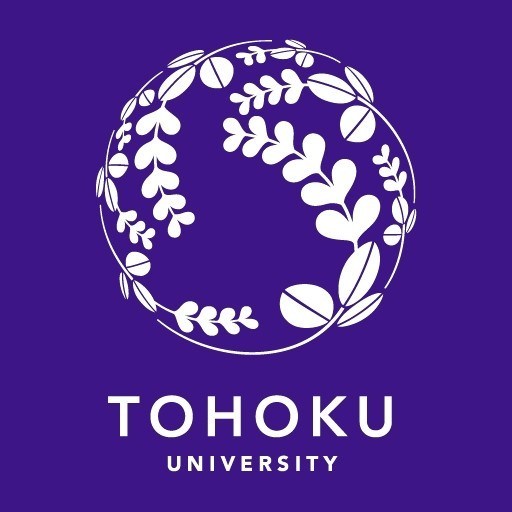Photos of university / #ucl
The Bachelor of Science in Chemistry at University College London offers a comprehensive and rigorous education in the fundamental principles and applications of chemistry. This programme is designed to provide students with a solid foundation in chemical theory, laboratory techniques, and modern computational methods, preparing graduates for careers in research, industry, education, or further academic study. Throughout the course, students explore a wide range of topics including organic, inorganic, physical, and analytical chemistry, with opportunities to specialise in areas such as materials chemistry, medicinal chemistry, or environmental chemistry. The curriculum emphasizes critical thinking, problem-solving, and experimental skills, supported by state-of-the-art laboratory facilities and research-led teaching. Students are encouraged to undertake independent projects, collaborate with peers and faculty, and gain practical experience through placements and internships. The programme also fosters an understanding of the societal, environmental, and ethical implications of chemical sciences, promoting responsible scientific conduct. With a strong emphasis on innovation and interdisciplinary approaches, graduates will be well-equipped to contribute to scientific advancements and address global challenges. The degree duration is typically three years full-time, with options for study abroad or industrial placements integrated into certain programmes. Upon completion, students receive a globally recognized qualification that opens pathways to diverse careers, including research and development, quality control, environmental consultancy, pharmaceuticals, or further postgraduate studies. The university’s vibrant academic community and strong connections with industry ensure students benefit from cutting-edge research, networking opportunities, and career support services throughout their studies at UCL.
Students will acquire a critical understanding of current debates and issues relating to science education, and will be guided and supported in developing their subject knowledge. We expect students to engage with reading and research into science education and to regularly reflect upon their own progress, towards meeting the teaching standards across the 11–16 age range.
Students undertake two level 7 (Master’s-level) modules of 30 credits each, totaling 60 credits. These can be carried forward onto full Master’s programmes at the IOE.
The Secondary PGCE consists of three core modules: two Master’s-level (level 7) modules, which are assessed through written assignments, and the Professional Practice module, which is assessed by the observation of practical teaching in placement schools.
Completion of the Professional Practice module and the two level 7 (Master’s level) modules (60 credits) will result in the award of a Postgraduate Certificate of Education (PGCE). Completion of the Professional Practice module and one or two level 6 (undergraduate/Bachelor’s level) modules, will lead to the Professional Graduate Certificate of Education (PgCE).
Core modules
- Science Education in the Broader Context (30 Master's-level credits)
- Wider Educational Studies - Chemistry (30 Master's-level credits)
Placement
Student teachers undertake at least two placements (totaling 120 days) at a school or college, during which time their teaching practice will be supported by a school subject tutor and mentor. The Professional Practice module is assessed through these placements, associated tasks and a portfolio.
Students may teach:
Key Stage 3: science (including elements of physics, chemistry, biology)
Key Stage 4: science (all areas) or chemistry (depending on school placement)
Key Stage 5: AS/A2 level chemistry
Teaching and learning
The Secondary PGCE full-time route is delivered via keynote lectures, subject lectures, seminars, workshops, tutorials and directed study days at the Institute of Education as well as time spent in placement schools or colleges. Assessment is by practical teaching, assignments and portfolio tasks.
Students will also record their progress in a Career Entry and Development Profile statement. This will form part of a portfolio that links into the induction year (the first year of teaching) and a student's continuing professional development.
First degree
Normally a minimum of a lower second-class UK Bachelor’s degree or an overseas qualification of an equivalent standard in Chemistry or a Chemistry-related subject.
A levels
No specific subjects required.
GCSEs
English Language and Mathematics at grade C.
School experience
Prospective students must complete a minimum of five days of school experience before they can be enrolled on the Secondary PGCE. This may involve observations, work experience (e.g. as a teaching assistant or cover supervisor), or voluntary work. Applicants must have a minimum of one day's school experience before interview; some subjects will be looking for significantly more than this. Applicants must ensure that their school experience is relevant in helping them to prepare for the Secondary PGCE, during which Student Teachers are placed in a wide range of schools across London and the South East.
DBS and Occupational Health
If you are made an offer you will be required to successfully complete Occupational Health and Disclosure Barring Service (DBS) Enhanced Disclosure checks. The total cost of these checks is £125. These checks are required to ensure you meet the Department for Education’s requirements for physical and mental health to teach, as well as assessing your suitability for access to children and vulnerable adults.
Skills tests
All applicants must successfully complete professional skills tests in literacy and numeracy before they can enrol.
Bursaries and scholarships of up to £27,500 are available to students who meet the eligibility criteria for the Chemistry PGCE.
The Bachelor of Science in Chemistry at University College London (UCL) offers a comprehensive and rigorous education in the fundamental principles of chemistry, complemented by practical laboratory experience and opportunities for specialization. The program is designed to develop students' understanding of chemical concepts such as organic, inorganic, physical, and analytical chemistry, providing a solid foundation for careers in research, industry, academia, or further study. Students benefit from access to state-of-the-art laboratories and research facilities, enabling hands-on experience with advanced instrumentation and experimental techniques. The curriculum includes core courses in chemical theory and practice, as well as optional modules that allow students to tailor their degree according to their interests, possibly including materials chemistry, environmental chemistry, and biochemical applications. UCL emphasizes research-led teaching, and students have the chance to participate in ongoing research projects, contributing to cutting-edge scientific discoveries. The program fosters critical thinking, problem-solving skills, and scientific communication, preparing graduates for diverse pathways in the chemical sciences and beyond. It typically includes a final-year project or dissertation, which encourages independent research and deeper engagement with a specialized topic. The program also emphasizes ethical considerations and sustainability in chemistry, reflecting contemporary scientific and societal priorities. Graduates of the BSc Chemistry program at UCL are well-equipped with theoretical knowledge, practical skills, and a research mindset, making them highly competitive in the global job market or suitable for entry into doctoral research programs.










